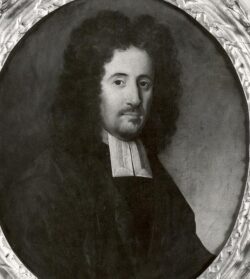
By Lauren Victoria Burke, NNPA Newswire Contributor
On April 26, 2022, Harvard President Larry Bacow released a detailed report entitled “Harvard and the Legacy of Slavery” revealing the details of Harvard University’s connections to slavery, the slave trade and racism, including which leaders at the University were slave owners.
The report also detailed Harvard’s history on bogus “race science” that the University forwarded. The study’s key findings can be reviewed here.
At minimum, 41 prominent individuals connected to Harvard University were connected to slavery. This includes four past presidents of Harvard University. The report also found that slavery was “a part of daily life” at Harvard. The report also bluntly pointed out that Harvard “today memorializes benefactors with ties to slavery across campus through statues, buildings, professorships, student houses, and the like.”

The four Harvard presidents who enslaved people were Increase Mather, president of Harvard from 1692 to 1701 and Benjamin Wadsworth, who was Harvard’s president from 1725 to 1737. Harvard notables who also enslaved people were Edward Wigglesworth, a professor of divinity and Isaac Royall, who funded the first professorship of law at Harvard.
So much of the wealth that was built in America from 1619 forward was constructed on the backs of free Black labor. Many institutions are beginning to take a hard look at the founding and the connections to their economic and financial success as it was connected to people they enslaved.
The University’s study also concluded that there was a significant benefit Harvard gained from plantation owners.
“The university and its donors benefited from extensive financial ties to slavery. These profitable financial relationships included, most notably, the beneficence of donors who accumulated their wealth through slave trading; from the labor of enslaved people on plantations in the Caribbean islands and in the American South; and from the Northern textile manufacturing industry, supplied with cotton grown by enslaved people held in bondage. The university also profited from its own financial investments, which included loans to Caribbean sugar planters, rum distillers, and plantation suppliers along with investments in cotton manufacturing,” the report stated.
In 2019, Harvard President Bacow set up a committee to detail Harvard’s connections to slavery and issue a report. Harvard University also announced “a $100 million fund” on April 26, to further research their ties to slavery. One hundred million is .02 percent of Harvard University’s $53 billion endowment.
________________
Lauren Victoria Burke is an independent journalist and the host of the podcast BURKEFILE. She is a political analyst who appears regularly on #RolandMartinUnfiltered. She may be contacted at [email protected] and on Twitter.


